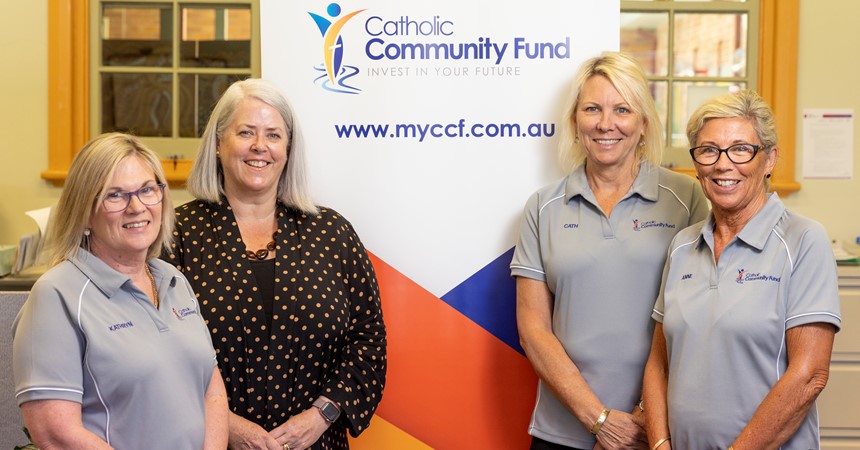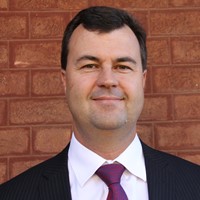The Diocesan Leadership Group recognise that although each agency of the Diocese has its own unique needs, there are many aspects of our work that are common to all our agencies, we are “Many parts. One body. One mission”. As such, this year the Diocese launched three entirely new and complementary plans including a Sustainability Plan, a Reconciliation Action Plan and a Strategic Plan to guide and unify the work that we undertake across all Diocesan agencies and parishes. The plans reflect a discernment process of formation, planning, and input from the Diocese’s leadership teams, staff from diocesan agencies as well as our parish communities and various Church councils.
Of course, working in a meaningful way that promotes, amongst other things, care for the environment and reconciliation with our Aboriginal and Torres Strait Islander communities is nothing new for our Diocese. However, these plans are significant as they formally identify our collective aspirations, priorities, and strategic direction for the next five years.
To that end, below is a brief overview of some of the work that the Diocese’s agencies, enacted through our 4,600 staff and valuable volunteers, have been working on throughout this year. While there is still plenty more to achieve in the years to come, I am sure you will agree we are making some good inroads.
Catholic Community Fund
This year, the Catholic Development Fund changed its name to Catholic Community Fund. Its new name better reflects the Fund’s purpose, and you can read more about this relaunch on page 14.
The Fund generated a surplus of $7.8m for the year ended 30 June 2022 exceeding its budget and forecast results, an exceptional result in a very challenging interest rate environment. From this surplus a $6m distribution was made to the Diocese to support its pastoral mission and the balance retained to build the CCF’s capital base.
The Fund also provided loan funding in excess of $35m during the year ended 30 June 2022, which will be utilised to construct and upgrade facilities in our schools, early education centres, CatholicCare premises, social housing and many other projects and infrastructure to support our community.
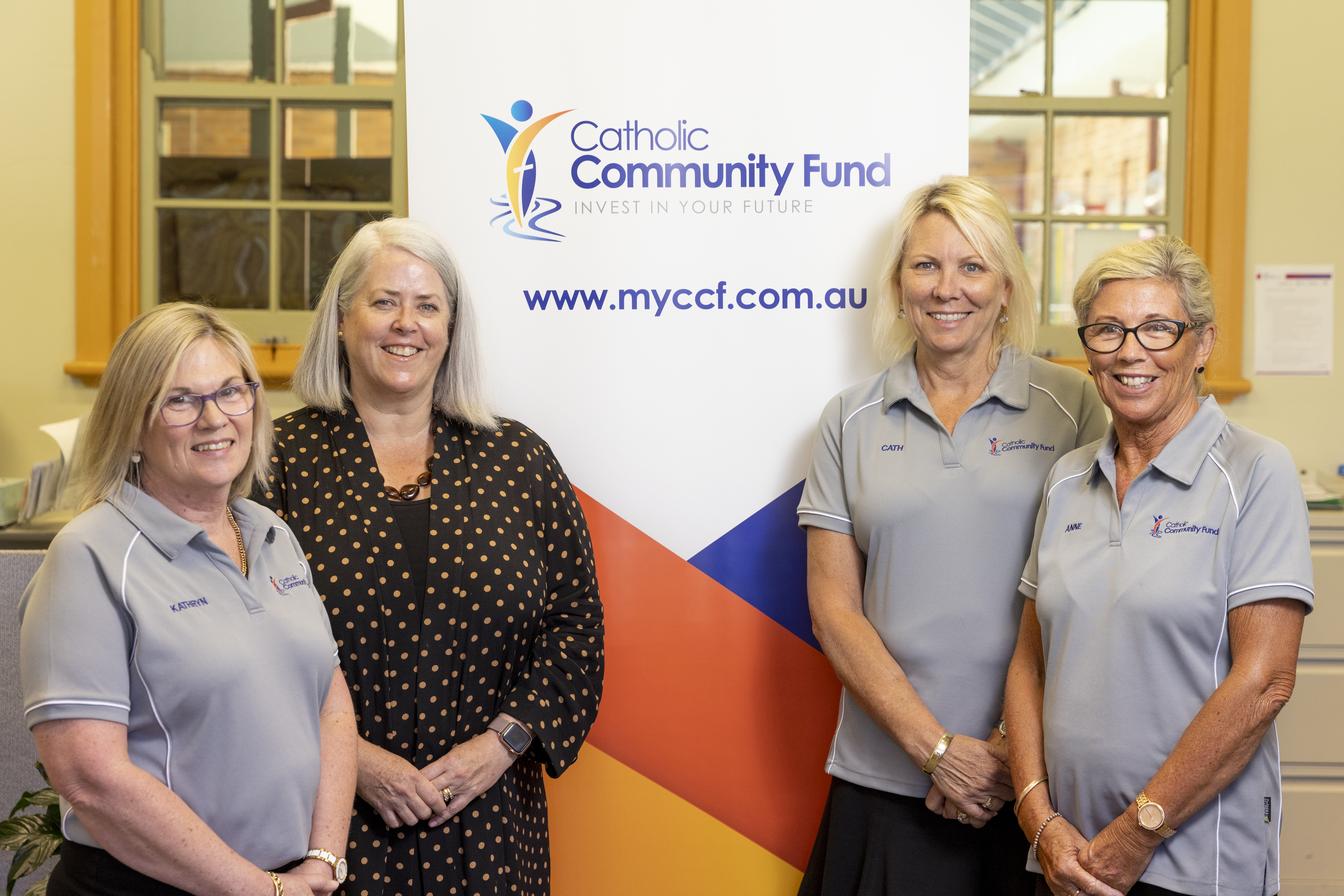
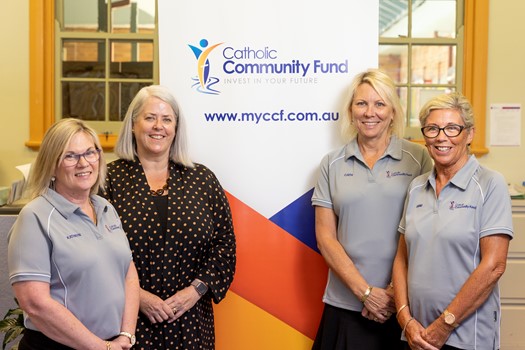
Schools
As Catholics, we deeply value the gift of lifelong learning. As such, it is no surprise that throughout the year our educators have enthusiastically embraced faith formation and professional development opportunities, as well as the chance to apply what they have learned to ensure our schools are at the forefront of supporting student development and wellbeing.
Our Diocese’s participation in the Clarity journey, led by world-renowned researcher Dr Lyn Sharratt, is now into its third year. The Clarity model promotes a collaborative framework that encompasses educators, students and their families working together to strengthen student outcomes. In November, educators from across our 58 schools gathered with Dr Sharratt to assess what impact the use of consistent language, structure and processes has made on student development and the results were incredible. It is clear our students now have a far great understanding and ownership of not only what they are learning, but why and how they can apply that knowledge.
Another highlight during the year was the launch of a Diocesan-wide, well-being framework designed to provide all schools with an evidence-based guide for everyday practices to strengthen their support of students. Entitled ‘Wellbeing Together- Student Wellbeing and Learning across the Whole School’ the framework has yielded strong results and emphasised the value of student-voice.
It was also great to see several our learning programs, particularly ASPIRE- our creative and performing arts program, take on new life in 2022. Students embraced the learning opportunities that come with these programs and were especially motivated to take part in the ASPIRE concert band and annual performance.
The Diocese announced that over the next five years, it will be renewing its approach to secondary schooling in Newcastle to ensure it best supports the educational needs and outcomes for its students. This work sees San Clemente High School, Mayfield, St Francis Xavier’s College, Hamilton and St Pius X High School, Adamstown each expand to become providers of quality, Catholic education to student cohorts from Years 7 – 12. The changes to school intakes and offerings will commence from 2024, and consultation regarding how this will best be achieved commenced, with valued input obtained from students, their families and staff.
Finally, our schools have continued to show their love for Creation by embracing the opportunity to transition towards more sustainable operations. Many of our schools have reduced their waste, water and energy use and we are well on our way to our goal of powering all our schools with 100 per cent renewable energy by 2023.


CatholicCare
CatholicCare continued in its mission to work with local communities to build a stronger, fairer and kinder society. The strength of its work in supporting children, young people and families was validated by the NSW Government, when it awarded the agency a new, five-year contract to deliver permanency support programs across the Hunter and Manning regions, as well as a brand-new program in the Manning, called Staying Home and Leaving Violence. In addition to this, the agency received 100 per cent compliance in its NDIS Quality and Safeguarding Commission audit, which highlights the professional standards that its staff continue to uphold.
In an exciting development, the agency launched two social enterprise ventures, including a cleaning service and café and function centre in Newcastle West. These ventures aim to create an avenue for vulnerable people to obtain meaningful employment and training while earning an income in line with the relevant award.
CatholicCare’s Refugee Hub continued to grow from strength to strength, with the addition of a migrant agent service to assist refugees and asylum seekers with Australian Migration Law matters. Additionally, with the generous support of the Catholic Schools Office the Hub established a Refugee Bursary Fund, and with support from the City of Newcastle and the NRMA, it was also able to assist people from refugee and migrant backgrounds take part in driver training and get their NSW Driver’s license. These initiatives have created opportunities for the Hub’s clients to fulfil their potential and highlight the importance of collaboration.
CatholicCare’s counselling and clinical services arm, The Rosewood Centre, continued to support the community’s wellbeing, and opened new services in Maitland and Taree throughout the year.
Of course, CatholicCare also delivers programs that receive no, or only partial government-funding but also provide crucial services to the community. As such, monies raised through its annual fundraising campaign and support from the Catholic Community Fund enabled the organisation to continue its much-valued community outreach programs including its existing community kitchens and also open a new kitchen in Toronto.


St Nicholas
While 2022 has been an operationally challenging year for the early childhood sector, St Nicholas has taken the opportunity to deliver several projects designed to improve service delivery across the network.
To cater for increasing demand in early childhood education and care services across the Lower Hunter, St Nicholas completed several projects to increase licenced capacity in our early education services across the region. Most notably, following a significant building project, Chisholm Early Education opened Stage 2 at the facility – increasing licenced capacity of the service by more than 50 per cent.
St Nicholas OOSH has continued to grow its footprint, opening a St Nicholas OOSH service at St Joseph’s Primary School in Gloucester and plans well underway to commence new services at St Peter’s Primary School in Stockton and St James’ Primary School in Muswellbrook early in the new year.
St Nicholas Pathways continued to grow throughout 2022, with a record intake of school-based apprenticeships and traineeships (SBATs), a new training partner Macquarie Community College for the CONNEX program and growth in participation for the Industry Immersion program.
To better meet the needs of the families, a review of St Nicholas operations was undertaken and resulted in its Early Education and OOSH Head Office teams coming together to enable greater specialist support of all services in the key areas of operations, staffing and quality assurance. This combined team will move into a refurbished premises on Parry Street, Newcastle by the end of the year. The premises have a rich history – originally a school building, the site was more recently the home of the Newcastle Art Space. It has been wonderful to see the space being rejuvenated and used once again.
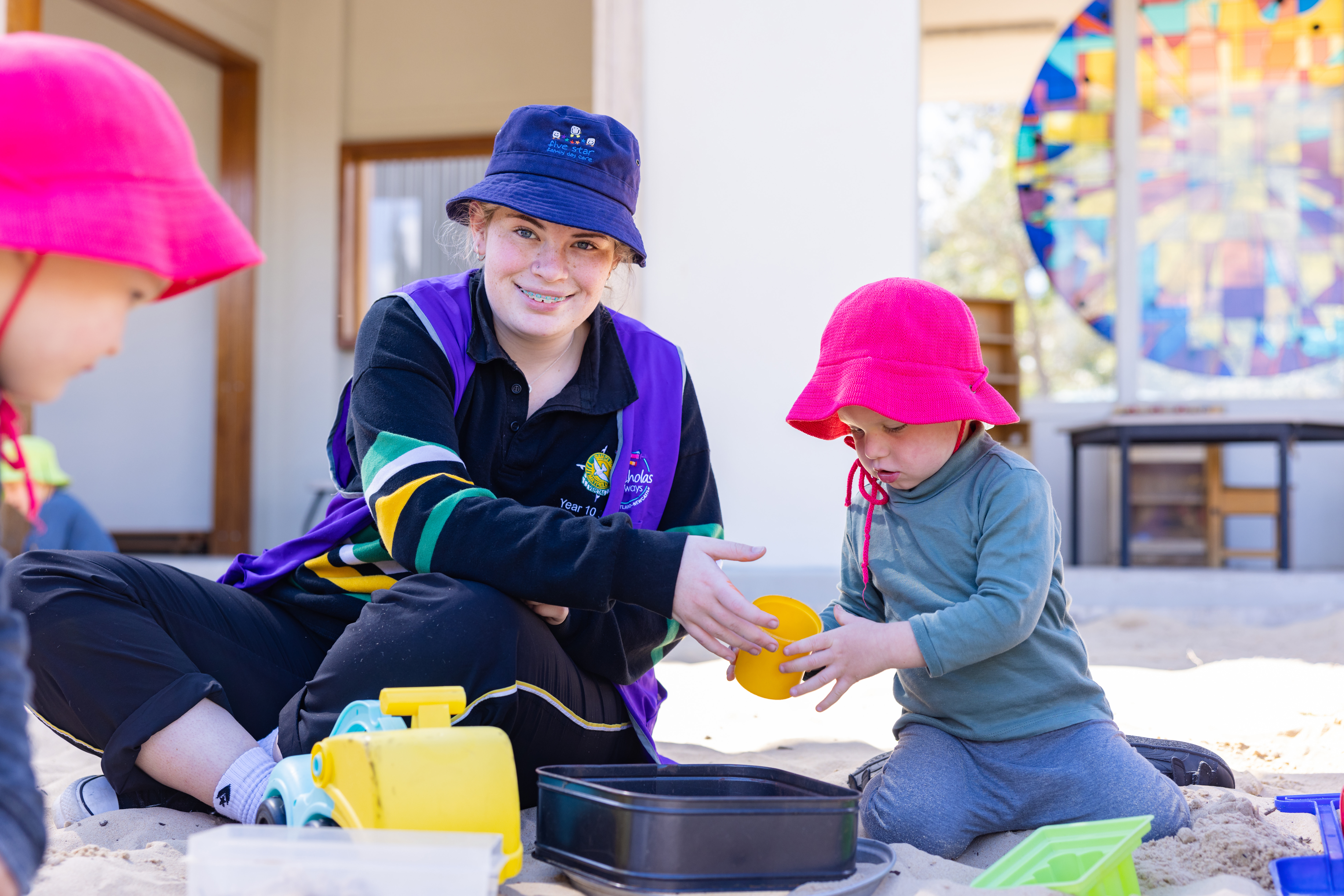

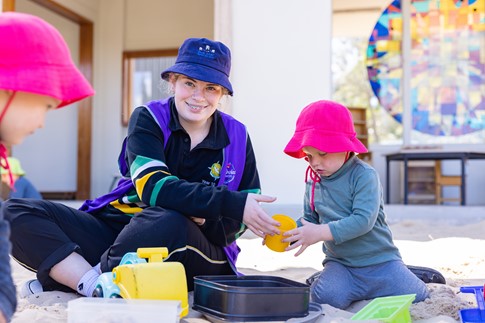

Pastoral Ministries
Inspired by the Five Foundations of the Diocesan Synod, the Diocese’s Pastoral Ministries team continued to imagine new ways of serving and engaging parishes and the wider community in the Church’s mission. Many opportunities were provided for people to participate in and enjoy experiences underpinned by the Five Foundations, namely: Identity and Community; Worship and Prayer; Formation and Education; Mission and Outreach; and Leadership and Structure.
This commitment to missionary renewal and unity within the Diocesan community has been particularly inspiring, given the postponement of the official Synod process while we await the appointment of a new Bishop.
Highlights throughout the year were many and include: ongoing dialogue to come to a shared understanding of our ecclesiology and synodal process, involving Parish Priests and Parish Leaders, Parishioners, Diocesan and Agency Leadership Teams and the wider diocesan community.
Advent and Lenten Reflection Programs involving the diocesan community; meetings of the various Synod Focus Groups to progress the work that incudes Foundation Guiding Principles, Discernment of Data, Diocesan Directory, Governance Guiding Principles and Documentation, Event Planning and Liturgy Planning. Meetings of various Diocesan Councils, supported by Pastoral Ministries, continue to provide opportunities for making real the spiritual foundational principles of the diocese which guide our mission, vision, and values.
Three Diocese of Maitland-Newcastle’s Plenary Council members attended the Second Assembly of the National Plenary Council, where Council members approved a concluding statement, with the decrees having now been sent to the Holy See.
The Ecumenical Way of the Cross was held at Kilaben Bay with the theme of ‘Church without Walls’. This event inspired fourteen storytellers to share their experiences of mission and outreach across diverse spaces.
Other highlights during the year were the World Meeting of Families events across the Diocese; more than 20 participants taking part in the Christian Formation Course; the continuation of Marriage and Relationship education; liturgical formation, the Diocese’s first LGBTIQA+ Mass; a visit from the Nuncio; and an art exhibition based on the Australian Catholic Bishops’ Social Justice Statement 2021-22: Cry of the Earth, Cry of the Poor.
The Pastoral Ministries Team actively seeks out ways to be God’s love and mercy in and to our church and the wider community.
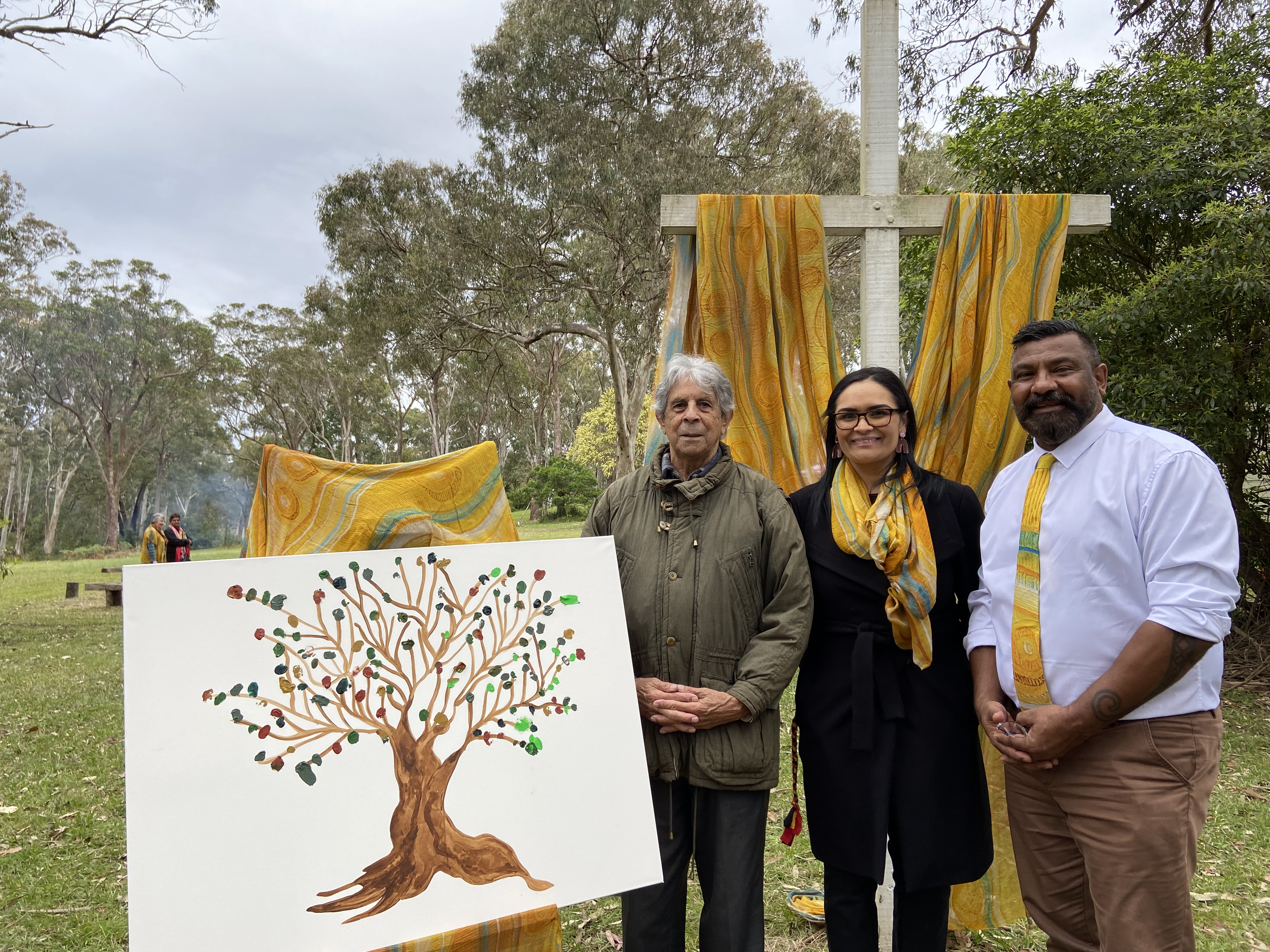
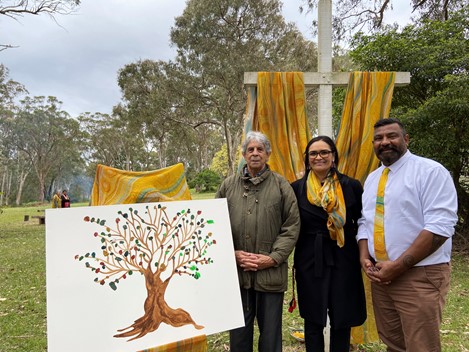
Office of Safeguarding
The Office of Safeguarding is the organisational expression of the Diocese of Maitland-Newcastle’s abiding commitment to promote the safety, welfare and wellbeing of children and vulnerable persons.
By the end of 2022 almost 1,000 diocesan personnel in child-related work will have attended full or half day safeguarding training courses, as well as the hundreds of personnel who undertook the safeguarding information session as part of their induction to the Diocese.
Our schools actively progressed their implementation of the complimentary NSW Child Safe Standards and National Catholic Safeguarding Standards. By the end of academic year 2022, almost all of the Diocese’s schools will have submitted approved Safeguarding Compliance Plans, with the few outstanding plans due for submission in early 2023.
More than 40 services engaged in our National Child Protection Week 2022 competition to present an artistic interpretation of this year’s theme, “Every child, in every community, needs a fair go.” Acclaimed local artist Mitch Revs will design and paint a mural in the winning schools, codesigned with the students.
The Diocesan Safeguarding Framework Policy was approved in October. This creates version two of the central policy statement on the ‘whole of Diocese’ commitment and approach to making the safeguarding of every child and vulnerable person, an integral part of all diocesan ministries and provision of services. The policy is available to the public on the Diocese’s website.
The Office of Safeguarding also finalised its four-year strategic plan (2022-2025) in May, incorporating the Diocese’s strategic plan and applying the five synodal foundations.



Follow mnnews.today on Facebook.
